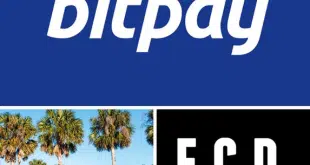A federal appeals court on Thursday threw out a massive agreement initially reached four years ago over card-network interchange and acceptance rules, drawing a sudden veil of uncertainty over crucial legal matters much of the payments industry had thought were all but settled.
In a 41-page opinion studded with sometimes scathing language, the U.S. Court of Appeals for the Second Circuit reversed the approval the federal district court in Brooklyn, N.Y., had granted in 2013 to a huge class-action settlement reached between retailers as plaintiffs and card networks and banks as defendants. The settlement, which at the time was the largest ever reached in an antitrust case, provided for more than $7 billion in monetary relief for merchants, temporary credit card interchange relief, and relaxation of some network rules concerning surcharging and other matters. Opt-outs by a slew of merchants dissenting from the settlement ultimately reduced the monetary relief to $5.7 billion.
The appeals court’s decision also vacates the class-action certification in the case, which will now return to the Brooklyn court. But little more than that is certain for the moment. “Everything is up in the air,” says Anita Boomstein, an attorney with New York City-based Hughes Hubbard & Reed LLP who works with merchant clients on payments issues.
Merchant groups, many of which had criticized the settlement as inadequate and unfair, were quick to celebrate the appeals court’s decision. “RILA enthusiastically welcomes the circuit court’s decision to throw out this harmful settlement,” said Deborah White, executive vice president and general counsel for the Arlington, Va.-based Retail Industry Leaders Association.
Visa Inc., a defendant in the case, had no immediate comment Thursday. Defendant MasterCard Inc. released this statement in response to an inquiry from Digital Transactions News: “We are disappointed by today’s ruling. We believe we presented a clear case to the court that the settlement was fair and appropriate based on more than four years of negotiation and the close involvement of the District Court. We are reviewing the decision to determine our next steps.”
The appeals court’s three-judge panel, which heard arguments on the settlement in September 2015, concluded lawyers and class representatives in the case had unfairly shortchanged one set of plaintiffs in favor of another in their efforts to reach an agreement and collect legal fees.
The agreement in the case divided the plaintiffs into two groups, one of which included merchants that accepted Visa and MasterCard cards from 2004 to 2012 and another that accepted the cards from 2012 onward. The former group was eligible to claim monetary relief, and its members were free to opt out and pursue their claims individually, an option a number of them exercised. Relief for the latter group, whose members cannot opt out, involved so-called injunctive relief, or various network rule changes, including changes that would allow merchants to surcharge for card transactions.
But this provision also extracted releases from these plaintiffs that foreclosed their ability to bring actions at any time in the future against the defendants on any other network credit card rules. If the defendants renege on the injunctive relief after July 20, 2021, the plaintiffs in this second group will no longer be bound by these releases, but only with respect to the specific rules covered by the injunctive relief.
The appeals court found the interests of the two groups too disparate to have been properly represented in negotiations by the same set of attorneys and class representatives. Noting for example that the district court had approved some $544.8 million in legal fees for plaintiffs’ lawyers, and that the fees were tied to the first group’s monetary recovery, the appeals panel points out that the lawyers could have traded away benefits for the second group to gain more monetary relief for the first group. “But the district court’s calculation of fees explicitly did not rely on any benefit that would accrue to the [second group], and class counsel did not even ask to be compensated based on the size or significance of the injunctive relief,” the appeals court’s opinion says.
Moreover, in a sharply worded section of the opinion, the appellate court dismisses the benefits for the second group as “worthless.” The injunctive relief allowing surcharging, for example, is outlawed in several populous states, including New York, California, and Texas. “Class counsel knew at the time the Settlement Agreement was entered into that this relief was virtually worthless to vast numbers of class members,” the opinion says. “Alternative forms of relief might have conferred a real and palpable benefit, such as remedies that affected the default interchange fee or honor-all-cards rule.”
As if to lay further stress on this matter, the court repeats this charge later in its opinion. “This is a matter of class counsel trading the claims of many merchants for relief they cannot use: they actually received nothing,” the court says.
In a concurring opinion, appellate court judge Pierre N. Laval said the settlement forced the injunctive-relief merchants “to give up forever” their potentially valid claims without giving them the opportunity to reject the deal by opting out of the class.
“This is not a settlement; it is a confiscation,” Laval wrote.
Attorney Boomstein says rewriting the agreement will be no easy task. “The more fundamental question is how do they restructure a settlement that would pass muster given what the Second Circuit has said,” she says. “There’s lots of nuances that have to be accounted for before the court would agree to a settlement. To me, they would have to start over with a different settlement structure that takes into account the varied interests of all merchants that accept cards.” –With additional reporting by Jim Daly




